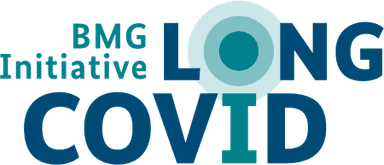Jun 2025 | Annals of Internal Medicine | RECOVER Initiative
Social living conditions affect the risk for Long COVID
A study led by researchers from the RECOVER Initiative examined to what extent social conditions in a person's daily life affect the risk of developing Long COVID. A link between social risk factors and negative health impacts – such as developing certain chronic health conditions – has already been established. However, to date there has been little research on a potential link between those factors and Long COVID.
In the study, researchers assessed data from 3,700 US-American adults. Social risk factors were identified using surveys and ZIP code data. The presence of Long COVID was assessed six months following infection with the SARS-CoV-2 coronavirus using the Long COVID Research Index.
The study showed that participants with social risk factors were two to three times more likely to develop Long COVID than those without. Social risk factors include things like a low income, a lower level of education, language barriers or low social support. The researchers also found that the more risk factors a person faces, the greater their risk of developing Long COVID.
The researchers point out that further studies should examine whether these findings also extend to children, whether certain symptoms are linked to specific social risk factors and whether such living conditions also influence how long symptoms of Long COVID persist.
Annals of Internal Medicine
The journal Annals of Internal Medicine is published by the American College of Physicians and the American Heart Association. It is an ‘Open Access Journal’ and its articles are freely accessible on the Internet.
RECOVER Initiative
The RECOVER Initiative was launched by the National Institutes of Health (NIH) in the USA. It is a national research programme designed to better understand, prevent and treat Long COVID.
